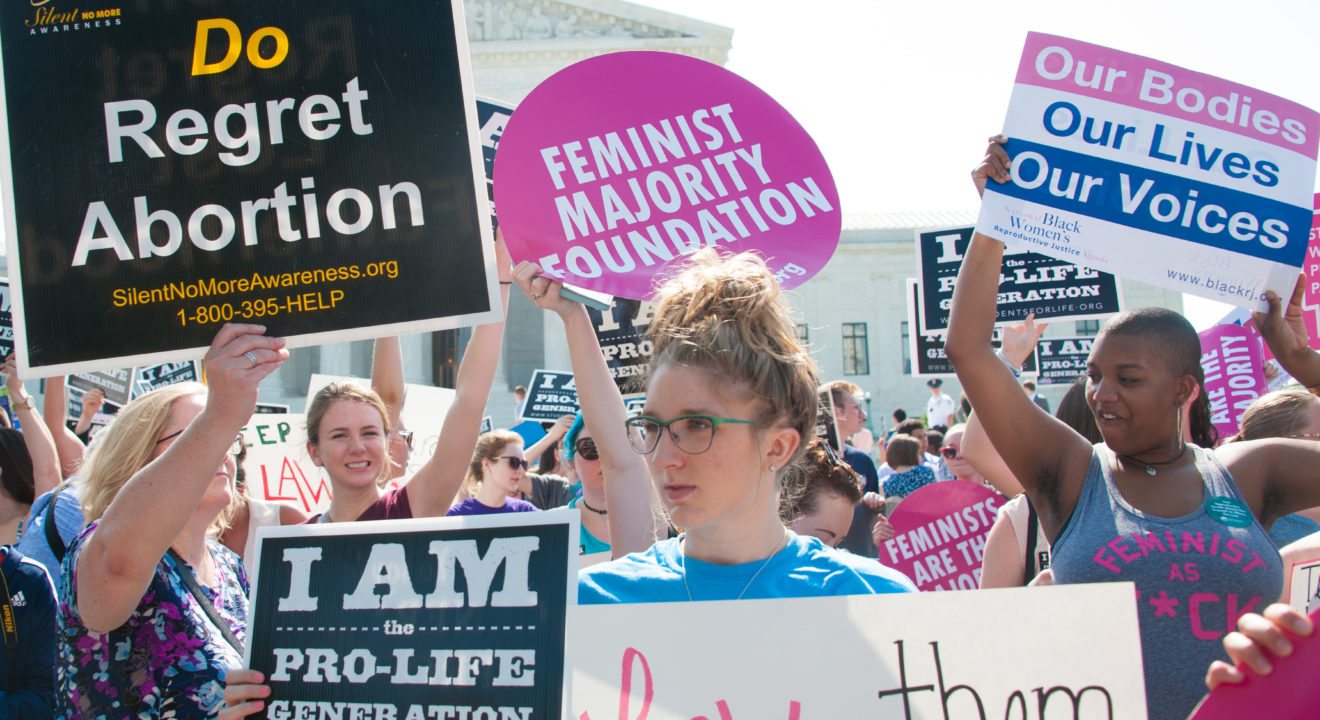Relationships December 6, 2016


With the election of Donald Trump – whose administration could greatly restrict women’s access to abortion – the issue of reproductive rights seems more prevalent than ever. The number of clinics have been dwindling nationwide as the southern states slowly chips away at abortion rights. In fact, the only abortion clinic in Dayton, Ohio, just lost its operating license.
But a recent documentary called “Trapped” allows men and women see the real effects of reduced access to abortion clinics in Texas, Mississippi and Alabama. The documentary, directed by Dawn Porter, won a special jury award for social impact at the recent Sundance Film Festival.
Why should everyone add this to the top of their Netflix shows to stream? Here are the top five reasons.
READ MORE: Donald Trump Appoints Planned Parenthood Critic to Head CIA (VIDEO)
How many times have you felt confused about how legal jargon functions in real life? Dawn Porter’s film works to unveil the true effects of Targeted Regulation of Abortion Providers (TRAP) laws. The film takes a close look at abortion clinics in Texas, Mississippi and Alabama to witness how they adjust to these TRAP laws.
According to a survey by the Texas Policy Evaluation Project, after the state closed down 30 abortion clinics, women have had to wait “three weeks longer for an appointment” and drive “four times as far” to find a clinic. Even more troubling, by the time women finally receive an appointment, it is often too late to safely end their pregnancies.
When it comes to controversial topics like abortion, sometimes the humanity of the people involved – the women getting the abortions, the doctors performing them, etc. – is forgotten. After watching “Trapped,” viewers won’t be able to forget who abortion restrictions are directly impacting.
At a particularly poignant scene in the movie, a 13-year-old rape victim approaches her second trimester because she cannot schedule an abortion in time. She drives four hours from her home to the nearest available clinic only to be sent home. Marva Sadler of San Antonia Whole Women’s Health tearfully explains to viewers that it will be nearly impossible to find the teen a safe and inexpensive procedure to end her pregnancy.
READ MORE: Pope Francis Extends Power to Forgive Abortion: “This is a Time of Mercy”
Another often forgotten aspect of abortion facilities? The people who work to give women the medical help they need. Whether you’re pro-choice or pro-life, it’s hard to not admire the dedication of workers in the clinic. Their jobs are difficult, made even more challenging by the dwindling numbers of doctors and the explosive growth of patients in need.
Dr. Willie J. Parker is one of the doctors featured in the film. A churchgoing obstetrician and gynecologist, Dr. Parker also works at the last abortion clinic in Mississippi: Jackson’s Women’s Health. Dr. Parker knows of the risks associated with his profession. “Doctors have been killed doing this work,” he comments. “When you have a sense of duty about what you do, it allows you to ignore the naysayers.”
The film reminds people on both sides of the abortion debate who are actually being affected by abortion legislation – both the women in need and the doctors who help them.
A film is only as great as the filmmaker. Luckily for us, director Dawn Porter is one of the inspiring #WomenThatDo. Her film is supported by Chicken & Egg Pictures, an organization dedicated to “support[ing] women non-fiction filmmakers whose artful and innovative storytelling catalyzes social change.”
READ MORE: Women in Film: “Change the numbers, change the game” Says Rainy Kerwin
Social change, after all, is exactly what Porter fights for. She says, “One of the successes of the anti-choice movement is creating a climate of stigma and shame. Roughly one in three women has had an abortion, but people don’t even want to say ‘abortion.’ Everyone has been influenced by anti-choice rhetoric.”
After the success of Trapped, Essense and Time asked Porter to make a short, two-part film called “The Racial Politics of Abortion.” According to Porter, every woman’s stories was heartbreaking but those of black women were even more complicated. Not only do white protesters often hold up signs of black babies while picketing Southern abortion clinics, but many black anti-abortion activities also incorporate race into their arguments.
As with “Trapped,” Porter’s main goal for “The Racial Politics of Abortion” is to raise awareness. “Often our stories, the stories of Black women, are too often lost or overlooked,” Porter says. “But I hope this film will give new voice to the hard choices that so many women face.”
READ MORE: How to Take Control of Your Reproductive Health
It would be false to say that this film is balanced in its coverage of the abortion debate; it’s easy to see on which side of the line Porter the documentary stands. However, especially considering the changes to abortion access that could come with Donald Trump’s administration, “Trapped” is an educational film you don’t want to miss.